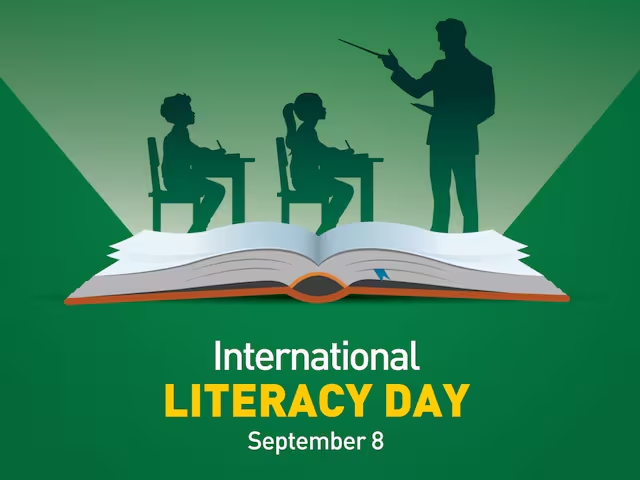Table of Contents

International Literacy Day 2024, observed annually on September 8, serves as a global reminder of the importance of literacy for individuals and societies. Initiated by UNESCO in 1966, this day focuses on raising awareness about literacy issues and promoting global efforts to ensure that everyone has the opportunity to acquire and improve their literacy skills.
The significance of literacy extends beyond mere reading and writing; it is a fundamental human right and a cornerstone of personal and societal development. The history of International Literacy Day dates back to the United Nations Educational, Scientific and Cultural Organization (UNESCO) Conference held in Tehran in 1965, which highlighted the global need to address literacy challenges. The following year, UNESCO officially declared September 8 as International Literacy Day, marking a global commitment to eradicate illiteracy and promote education for all.
Global Literacy Statistics and Trends
As of 2024, global literacy rates have improved substantially since the inception of International Literacy Day. According to UNESCO’s latest data, the global adult literacy rate stands at approximately 87%, with notable progress in many regions. However, disparities persist, particularly in sub-Saharan Africa, South Asia, and among marginalized communities.
Youth literacy rates have generally improved, but there are still concerns about the quality of education and the relevance of curricula in preparing young people for the modern workforce. The rise of digital literacy and the need for skills beyond traditional literacy are increasingly important.
Key Challenges in Literacy Education
Language barriers pose a significant challenge to literacy. In multilingual regions, students may be educated in a language different from their mother tongue, affecting their learning outcomes. Developing literacy materials in multiple languages and dialects is essential for addressing this issue.
Adult literacy remains a critical issue, with millions of adults around the world lacking basic literacy skills. Addressing adult literacy requires targeted programs that accommodate the needs of working adults and other learners with varying educational backgrounds.
Access to quality education remains a critical issue. In many parts of the world, children and adults lack access to schools, qualified teachers, and educational resources. Rural areas and conflict zones are particularly affected.
Innovative Approaches and Solutions
Leveraging technology can enhance literacy education. Digital platforms, online courses, and educational apps provide opportunities for remote learning and access to a wide range of resources. However, efforts must be made to ensure equitable access to technology and address the digital divide.
Advocacy campaigns play a crucial role in raising awareness about literacy issues and mobilizing resources. Governments, NGOs, and international organizations can collaborate to promote literacy initiatives, influence policy, and mobilize funding.
Effective literacy programs often involve partnerships between governments, NGOs, private sector organizations, and local communities. Collaborative efforts can pool resources, expertise, and networks to achieve common goals.
The Role of International Cooperation
Brazil’s “Family Literacy Program” addresses literacy challenges by engaging families in the learning process. The program offers literacy classes for parents and caregivers, enabling them to support their children’s education effectively. This approach has demonstrated positive outcomes in improving literacy levels and fostering a culture of learning within families.
Kenya has made significant strides in improving literacy rates through the implementation of the “National Literacy and Numeracy Strategy.” This strategy focuses on early childhood education, teacher training, and community involvement. The success of this program has been attributed to its comprehensive approach and strong community support.
International cooperation is essential in advancing global literacy efforts. Organizations such as UNESCO, UNICEF, and the World Bank play a vital role in coordinating and supporting literacy initiatives worldwide. Collaborative efforts among governments, NGOs, and international bodies can enhance the effectiveness of literacy programs and address global challenges.
International cooperation facilitates knowledge sharing and capacity building among countries. By exchanging best practices, experiences, and expertise, countries can learn from one another and implement effective strategies for improving literacy.

Looking Ahead: The Future of Literacy
As we approach International Literacy Day 2024, it is essential to focus on the future of literacy and the evolving needs of learners.
As new challenges arise, such as the impact of artificial intelligence and the digital divide, it is essential to develop innovative solutions and adapt literacy programs to address these issues.
Lifelong learning is a key component of literacy in the 21st century. Encouraging continuous learning and skill development throughout one’s life ensures that individuals remain adaptable and capable in a rapidly changing world.
International Literacy Day 2024 provides an opportunity to celebrate progress, acknowledge ongoing challenges, and renew our commitment to advancing literacy worldwide.
- why Taliban say I love Hindustan - September 19, 2024
- International Day of Peace 2024 - September 18, 2024
- International Equal Pay Day 2024 - September 17, 2024
